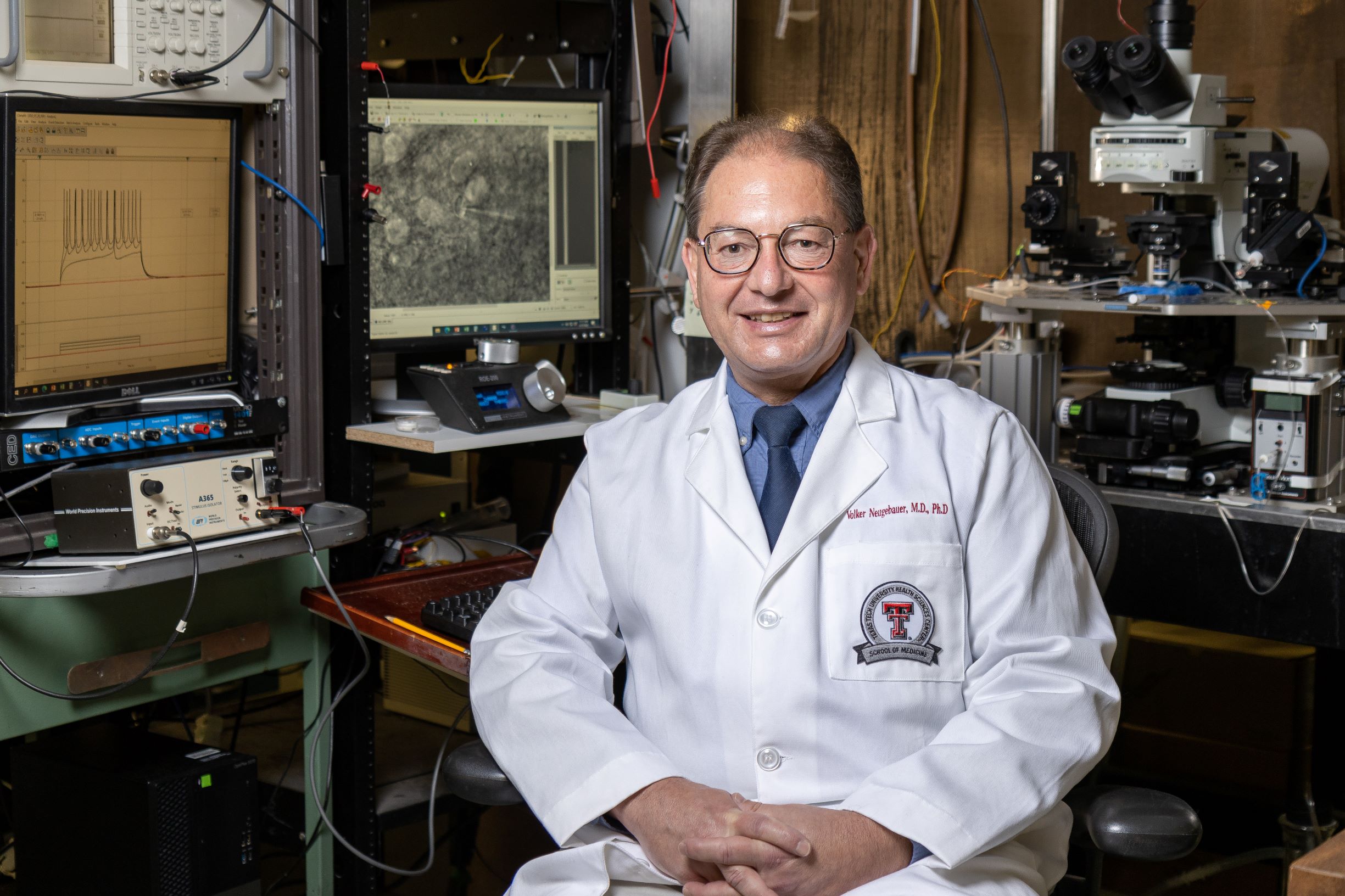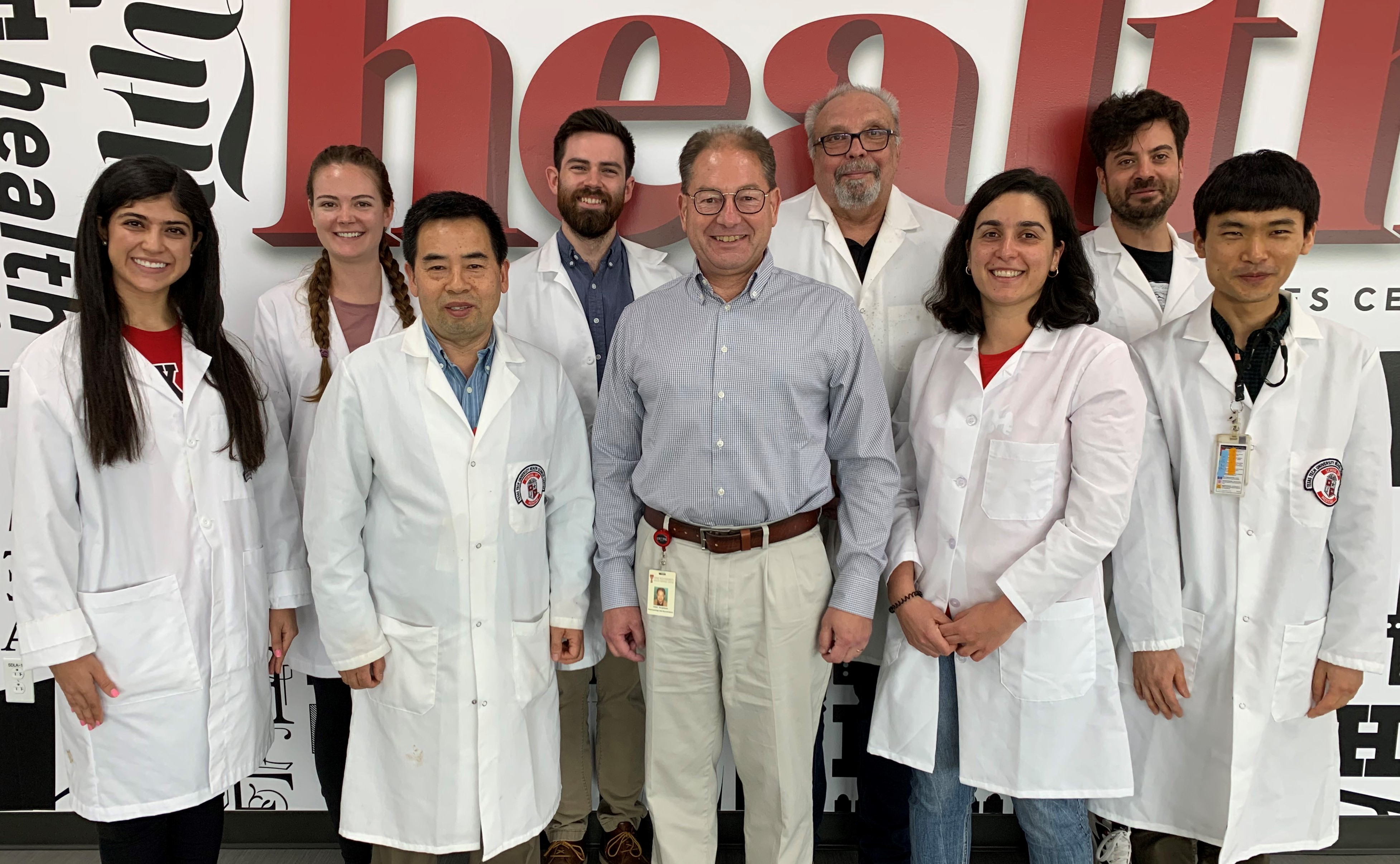Dr. Volker Neugebauer - Faculty Page
Brain health and neuroplasticity.
The focus of my research has been on mechanisms of neuroplasticity and brain functions in health and in clinically relevant disorders such as chronic pain and comorbid conditions, neurodegenerative diseases and dementias, epileptogenesis, and other neurological and psychiatric disorders for more than 30 years. A neuroscientist with training and practice in neurology I am particularly interested in translational research. The analysis of synaptic and cellular neuroplastic changes associated with emotional-affective and cognitive aspects of pain and substance (alcohol and opioids) use disorder centered on the cortico-limbic system and the amygdala and is a key contribution of our work to the field of pain research and neuroscience. Ongoing projects are focused on neuroimmune signaling and neuroplasticity in pain and neurodegenerative diseases. Our programs cover the full spectrum, from basic research to translational approaches and clinical studies, as well as community engagement.
I have been able to initiate and lead collaborative basic science projects and studies in humans on mechanisms, biomarkers, and interventions in chronic pain and aging-related health issues, including mental health and dementias and Alzheimer's disease in particular, in my roles as Department Chair, Founding Director of the Center of Excellence for Translational Neuroscience and Therapeutics (CTNT), and Executive Director and Chief Scientific Officer of the Garrison Institute on Aging (GIA). As the GIA Director I also oversee programs to improve the mental health of informal caregivers of patients with Alzheimer’s Disease and Alzheimer’s Disease Related Dementias, including the newly created memory clinic, as well as Project FRONTIER, a longitudinal epidemiological study on aging and cognitive decline in a multi-ethnic sample of adults in rural communities. The GIA houses a biorepository and a brain bank with more than 200 frozen and fixated brains from patients with various forms of dementia and controls. Our basic research program uses a multidisciplinary approach of state-of-the-art in vivo and in vitro electrophysiology and cellular imaging, opto- and chemogenetics, viral vector and transgenic strategies, molecular biology, immunohistochemistry, (opto-)pharmacology, and innovative behavioral assays. Our clinical studies use MRI/fMRI, pain and neurocognitive assessments, biomarker analyses, and epidemiological databases.
My work has been published in more than 180 research articles, reviews and editorials, and presented in more than 160 invited lectures and workshops. My nationally and internationally recognized (h-index 68, 14706 citations, Google Scholar, 06-23-25) research program has been continuously funded by the NIH since 1999, and by the USDA and foundations. The overall goal of our translational research is to improve brain health and mitigate chronic diseases such as pain and dementias through mechanistic and translational research. Another important goal is the education and training of biomedical researchers and health care professionals. I have a track record of successfully mentoring junior faculty, postdoctoral fellows, clinical residents, MD/PhD students, PhD students, MD/MS students, medical students, and undergraduate students. Generation and dissemination of knowledge about brain health is an important goal and benefit to medical school education and graduate and postgraduate training.
CURRENT FUNDING:
- NIH/NINDS, R01 NS038261 - “Amygdala Pain Mechanisms”, PI, Volker Neugebauer
- NIH/NINDS, R01 NS129552 - “Brain Circuits of Migraine Pain”, MPI, Volker Neugebauer
- NIH/NINDS, R01 NS120395 - “A prolactin-mediated neuroendocrine link between stress-induced latent sensitization and female-selective pain”, MPI, Volker Neugebauer
- NIH/NINDS, R01 NS118731 - “Trans-synaptic signaling complex in amygdala pain mechanisms”, MPI, Volker Neugebauer
- NIH/NINDS, R01 NS109255 - “Pronociceptive and antinociceptive opioid mechanisms in the central nucleus of the amygdala”, Co-I, Volker Neugebauer
- USDA/NIFA, 2024-67018-42457 - “Ginger and the microbiota-gut-brain connection in sciatic pain individuals”, MPI, Volker Neugebauer
- Garrison Family Foundation - “Improving dementia care for West Texas residents through a comprehensive Memory Clinic”, MPI, Volker Neugebauer
- Sabinsa Corporation, NJ - “Curcumin and retinal amyloid-beta pilot study”, Co-I, Volker Neugebauer
- Alzheimer's Research Seed Grant, Texas Tech University College of Health and Human Sciences - “Smartphone-based cognitive impairment assessment tool: A pilot study of feasibility and validation”, MPI, Volker Neugebauer
- CTNT-OR-GIA JSBDVN Seed Fund Program - “fMRI studies of the reward system in persons with AD/ADRD and their caregivers”, Co-I, Volker Neugebauer


